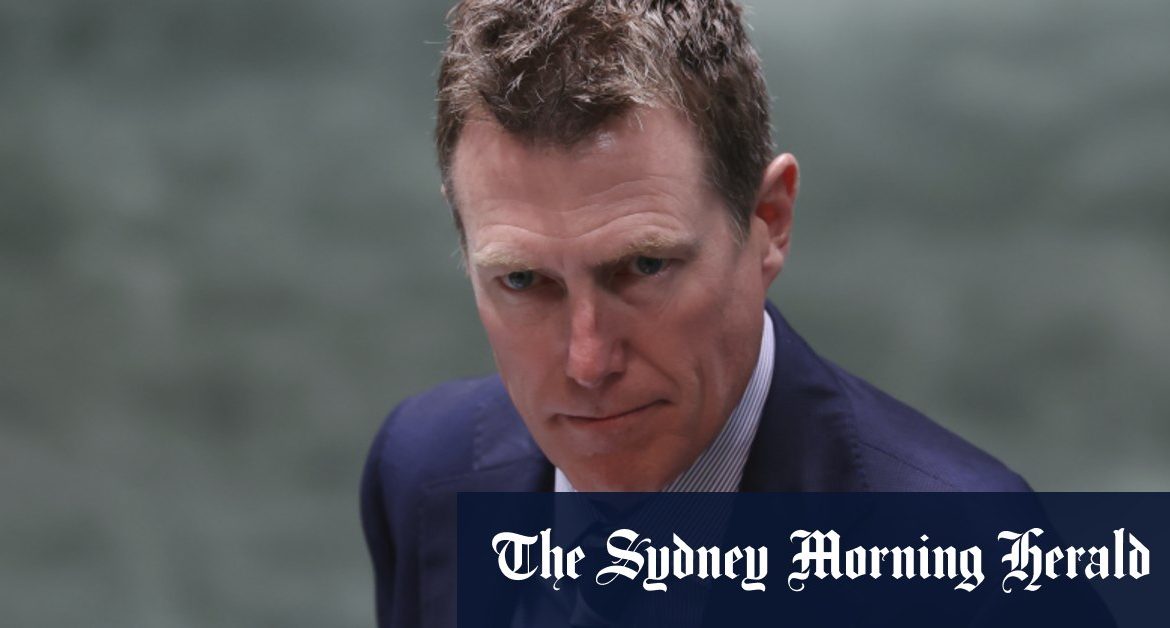Under the laws they settled on, for a declaration to be made the emergency must have “caused, be causing, or be likely to cause” nationally significant harm to the life or health of an individual, or group of individuals, animals or plants, the environment, property, or the disruption to an essential service.
“This means swift action can be taken at a national level to deal with rapidly-developing emergencies, particularly in situations where a State or Territory is incapacitated or overwhelmed by events,” Mr Porter said.
Senator Ryan and Dr Allen, both Victorians, had earlier this week raised concerns the laws would lead to an over-reach in executive power, based on the experience of police moving people on from parks and the army being deployed on the streets of Melbourne.
For some of the government MPs, the broad definition was seen as allowing future prime ministers or ministers to claim an industrial dispute might qualify as a “national emergency” and justify an ADF deployment.
A separate concern, aired by Queensland Senator Gerard Rennick in the party room on Tuesday, was that a future government might declare a “climate emergency” and use the new law to impose its will.
Other MPs raised concern the law created the power with a broad definition of emergency that would run for three months and could be constantly extended without parliamentary oversight.
Loading
They also raised fears subsequent tranches of legislation would add extra powers to the bill, fuelling concerns they would be used – particularly by law enforcement agencies – in unintended ways.
Emergency declarations will be limited to a maximum of three months, with extensions possible if the initial justification for the declaration continues to exist.
The move to give the government the powers was a key recommendation from the Royal Commission into National Natural Disaster Arrangements, which said the federal government should be given powers to take action even if states and territories don’t specifically ask for help, but only in “clearly defined and limited circumstances”.
The commission, chaired by retired Air Chief Marshal Mark Binskin, said having the national state of emergency would make it clear to the public how serious the disaster was.
Its final report said the powers would enable processes to mobilise and activate Australian government agencies quickly to support states and territories to respond to and recover from a natural disaster, and the power to take action without a state or territory request for assistance in clearly defined and limited circumstances.
Loading
The powers have been particularly controversial in Victoria during COVID-19, where Premier Daniel Andrews was forced to dump his controversial bid to extend its power to declare states of emergency for another 12 months in August, which it had used every four weeks throughout the pandemic.
He instead reached a deal with crossbench MPs in the upper house for a one-off extension lasting six months, but not the permanent legislative change he had sought, on condition that members of Parliament are briefed on the health situation each time a new four-week state of emergency is declared.
States and territories already have legislated power to make emergency declarations and did so in respect to a number of natural disasters, including during the 2019-2020 bushfire season and the COVID-19 pandemic.
Rob Harris is the National Affairs Editor for The Sydney Morning Herald and The Age, based at Parliament House in Canberra
David Crowe is chief political correspondent for The Sydney Morning Herald and The Age.
Most Viewed in Politics
Loading







